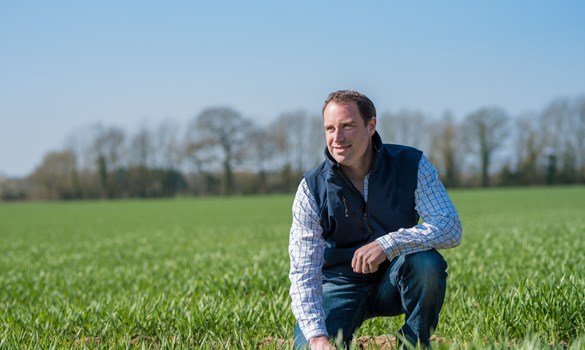Boosting beneficials and IPM: Diss
Boosting beneficials and IPM
Diss Monitor Farm meeting
With the reduction in availability of key inputs, the need for integrated pest management has become even more important. But….do you know what pollinators and beneficials you are encouraging, how to encourage them and how to manage them?
Programme
- Registration and sandwich lunch
- Welcome and introduction: Teresa Meadows, AHDB
- Farm update: Richard Ling, Diss Monitor Farmer
- Introduction to session: Teresa Meadows, AHDB
- Beneficials, pollinators and pest thresholds: group exercise
- Using beneficials for integrated pest management: John Holland, GWCT
- Beneficials: types and the resources they need
- Research on their impact
- Techniques for encouraging them onto your farm
- Tools for monitoring
- Refreshment break
- Boosting beneficials and managing pests on my farm: Andy Barr, A & A Barr Farms
- IPM Plan for Winter Wheat at Rookery Farm: group discussion
- Meeting summary and close: Teresa Meadows, AHDB
- Depart
Diss Monitor Farm
Richard Ling farms 400 ha on varied soil types from sandy loam to heavy clay loams. His arable rotation, on 380 ha, includes wheat, oilseed rape, winter barley for feed or spring malting barley. The farm employs one full time member of staff and casual labour when required. Richard mainly operates a min-till system but assesses each field based on soil health. The farm also has a beef finishing unit for Morrisons, aiming to finish 150 British Blues per year; business and residential lets; and a self-storage business. Richard’s ambition is to carry on building a resilient and profitable farming business, with a good work-life balance for all. Through being a monitor farmer, Richard is keen to learn with others and better understand the industry and the challenges facing it.
About Monitor Farms
AHDB Monitor Farms bring together groups of like-minded farmers who wish to improve their businesses by sharing performance information and best practice around a nationwide network of host farms. AHDB organises and facilitates Monitor Farm meetings for farmers, who own and operate the scheme – by farmers, for farmers. Monitor Farms are part of the AHDB Farm Excellence Programme. Each Monitor Farm project runs for three years.


